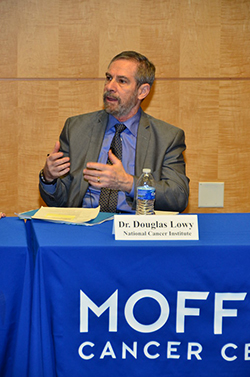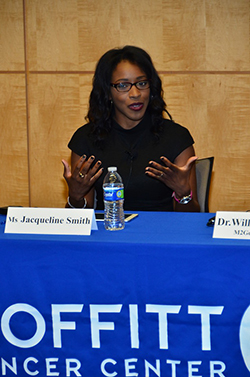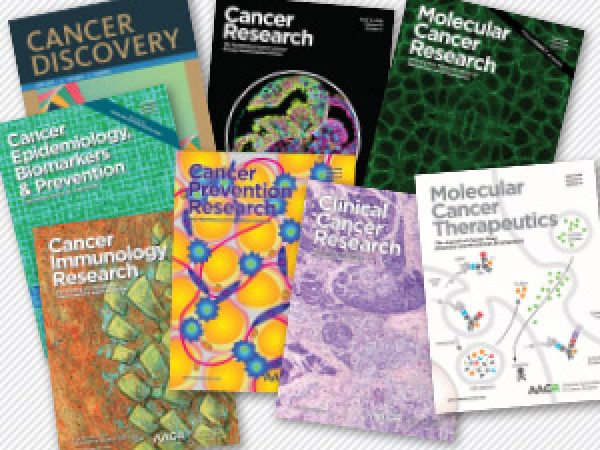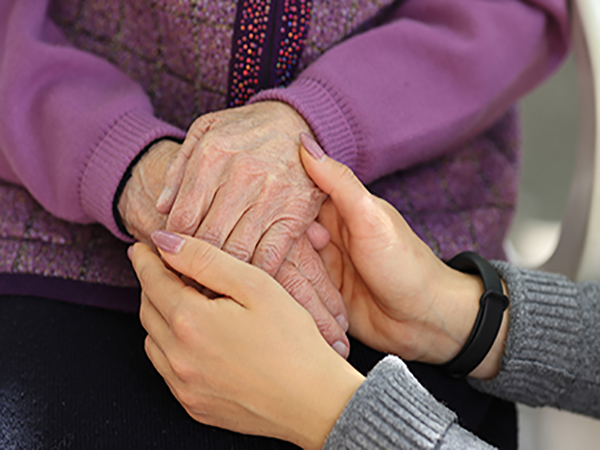Taking the Message to the Local Level: AACR Hosts Cancer Research Policy Forum in Tampa
In this current fiscally constrained environment, it is becoming increasingly important to advocate and communicate with members of Congress about cancer research in their home congressional districts and states, as opposed to focusing such efforts solely on Capitol Hill. After all, more than 80 percent of the National Institutes of Health (NIH) budget is provided in the form of peer-reviewed (and competitive) research grants that support scientists at cancer centers, medical schools, universities, and other medical institutions in all 50 U.S. states.
The American Association for Cancer Research (AACR) is uniquely positioned to provide opportunities for its members from cancer centers and medical institutions across the country to organize events in states and local districts that highlight the lifesaving cancer research made possible by federal dollars. Such events also allow members of Congress to hear firsthand from researchers and patients in their districts and states, as well as learn how their local institutions are benefiting from NIH funding.
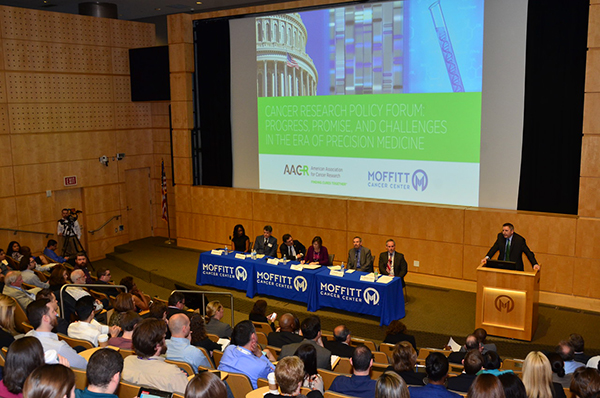
The “Cancer Research Policy Forum: Progress, Promise, and Challenges in the Era of Precision Medicine” event was held on March 7, 2016 at Moffitt Cancer Center.
To this end, on March 7, the AACR co-hosted its first, local advocacy event with the Moffitt Cancer Center in Tampa, Florida. The event, Cancer Research Policy Forum: Progress, Promise, and Challenges in the Era of Precision Medicine, drew more than 250 attendees and showcased the cutting edge research taking place at Moffitt, one of only 45 comprehensive cancer centers in the United States, and the only National Cancer Institute (NCI)-designated cancer center in Florida. It provided an important opportunity for members of Congress from the Tampa Bay area, Moffitt researchers, and members of the public to hear from Douglas R. Lowy, MD, acting director of the NCI.
Thomas Sellers, PhD, MPH, executive vice president and cancer center director at Moffitt, opened the forum with a call to action: “Everyone has a vested interest in cancer research, and continued activism is important in the fight against cancer.” Lowy repeated the call for action and dialogue by citing the importance of collaborations between the NCI, the AACR, and cancer centers noting, “If you want to go fast, go alone. If you want to go far, go together.”
Lowy’s presentation included an update on the NCI’s budget and current program priorities, including President Obama’s Precision Medicine Initiative and Vice President Biden’s national cancer initiative. Urging the audience to remain engaged, Lowy noted, “It is critical for everyone to tell their congressional representatives that biomedical research is important because it leads to the cures and preventions for tomorrow.”
Two United States Representatives were present to hear the message. Gus Bilirakis and Kathy Castor, who both represent Tampa Bay area districts and serve on the House Energy and Commerce Committee, spoke about their commitment to supporting cancer research and the NIH. Bilirakis and Castor, along with their committee colleagues, developed and passed the 21st Century Cures bill, which provided an additional $8 billion in mandatory funding to the NIH over the next five years. Both lawmakers also applauded the $2 billion increase Congress provided for the NIH in the FY 2016 omnibus appropriations bill; however each cautioned, “It is not enough and we need to do more.”
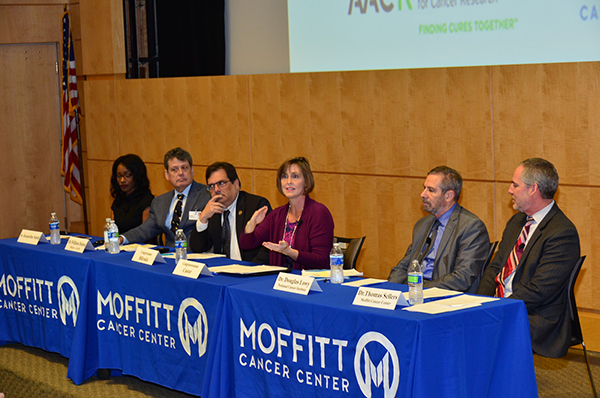
Rep. Kathy Castor speaks on a panel alongside Rep. Gus Bilirakis at Moffitt Cancer Center on March 7, 2016, about the importance of federal funding for cancer research.
Doing more includes ensuring funds are there to support students, postdocs, and early career scientists, many of whom were in the audience and shared with Lowy, Bilirakis, and Castor the significant challenges they face at the dawn of their careers. William Dalton, MD, PhD, chair of the AACR Science Policy and Government Affairs Committee, echoed the committee’s concerns. “Without increased and predictable funding, there is no next generation of researchers.”
Perhaps most poignant were the remarks of Jacqueline Smith, a 15-year survivor of stage 3 melanoma and member of Moffitt’s Community of Courage. Jackie spoke of how her experience with cancer has inspired her to become a lifelong advocate for research stating, “I am not just surviving, I am thriving.”
The AACR intends to team up with our members in cancer centers across the country, as well as universities and other medical institutions, to host additional local advocacy events. Just as funding is necessary to advance cancer research, so is making the case for robust, sustained, and predictable increases for the NIH and NCI in the communities where those research dollars are being utilized to improve the lives of cancer patients.

